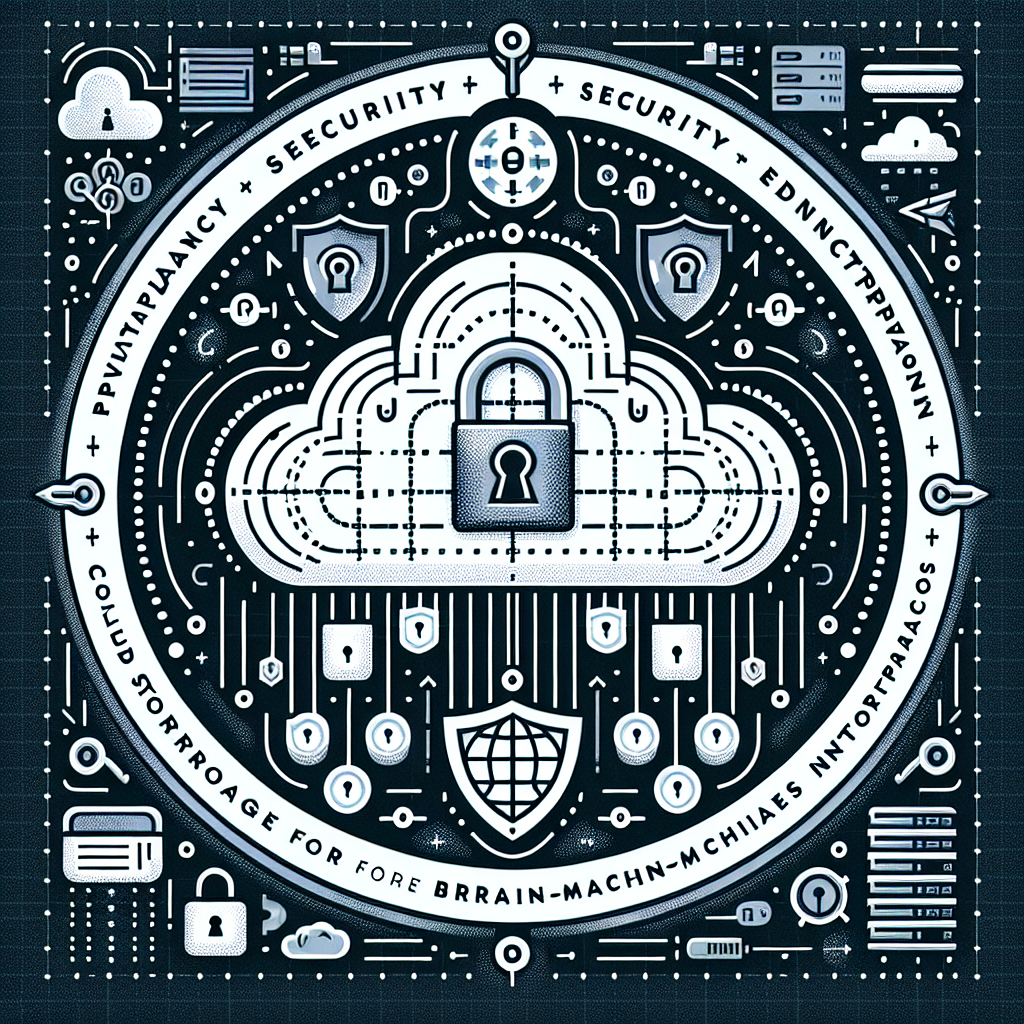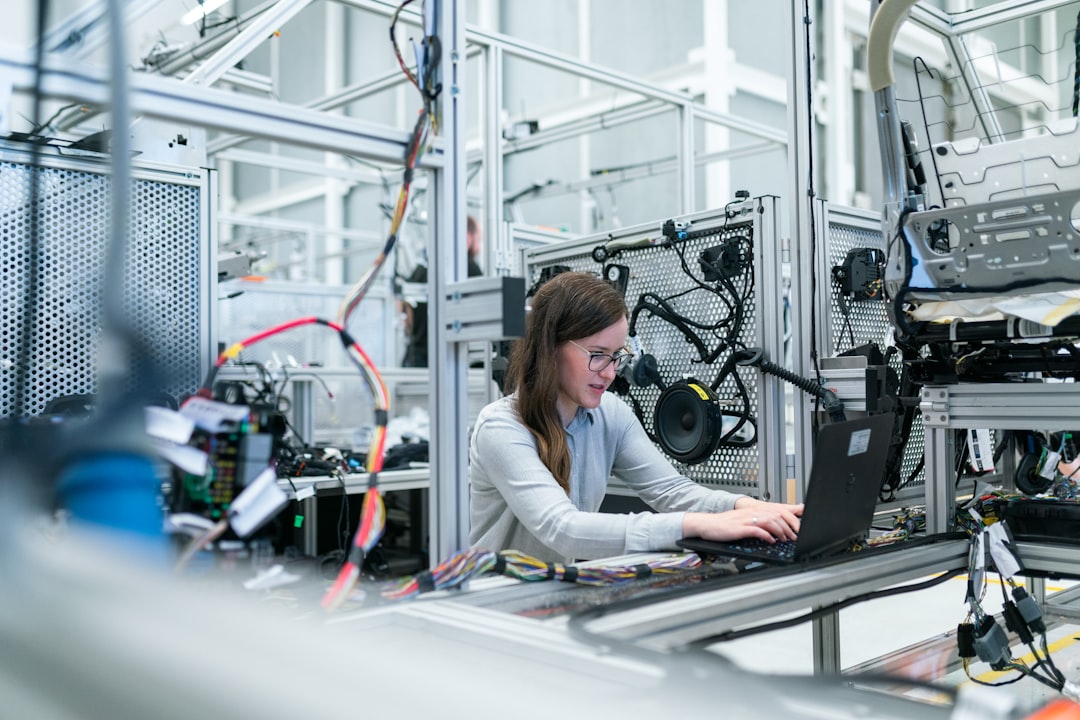Unlock encrypted content
Please enter your SSCE key to initiate on-the-fly decryption.
Decryption key: (Click cancel if you don't have the key)
Copied link to clipboard.
This feature is unavailable for free accounts. Upgrade now and enjoy all Premium benefits.
Go Premium!
This feature is unavailable for free accounts. Upgrade now and enjoy all Premium benefits.
Go Premium!
Please open this page in browser ( Google Chrome or Safari ) to use this feature.
Open In Browser
Brain-Computer Interfaces (BCIs): The Future of Human-Machine Interaction.
Random related video for this blog.
Copied share link to clipboard.
Introduction
In recent years, we have witnessed tremendous advancements in technology, paving the way for a future that was once only imaginable in science fiction. From robot rebellion to mind uploading, the possibilities seem endless. One such groundbreaking innovation that holds immense potential is Brain-Computer Interfaces (BCIs). BCIs have the ability to revolutionize the way we interact with machines, opening up a world of possibilities that were once confined to our imagination. In this article, we will explore the concept of BCIs, their applications, and the impact they can have on our lives.Understanding Brain-Computer Interfaces (BCIs)
Brain-Computer Interfaces (BCIs) are devices that establish a direct communication pathway between the brain and an external device, such as a computer or a robot. This technology enables individuals to control and interact with machines using their thoughts alone. BCIs work by detecting and interpreting electrical signals generated by the brain, translating them into commands that can be understood by the machine. This fascinating technology holds the potential to empower individuals with physical disabilities, allowing them to regain control over their environment and perform tasks that were once deemed impossible.Applications of Brain-Computer Interfaces
The applications of BCIs are vast and diverse, ranging from healthcare to gaming and beyond. One of the most promising applications is in the field of assistive technology, where BCIs can provide a lifeline for individuals with severe physical disabilities. For example, a person with paralysis can use a BCI to control a robotic arm, enabling them to perform everyday tasks independently. BCIs also hold great promise in the field of neurorehabilitation, where they can be used to facilitate recovery in individuals with neurological disorders, such as stroke or spinal cord injuries. Another exciting application of BCIs is in the realm of virtual and augmented reality (VR/AR). By seamlesslyintegrating our thoughts with digital environments, BCIs can enhance our immersive experiences and take gaming and entertainment to a whole new level. Imagine controlling a character in a virtual world simply by thinking about your actions or manipulating virtual objects with your mind. BCIs can also be used to enhance our cognitive abilities, such as memory and concentration, by providing real-time feedback and training.
The Future of BCIs
While BCIs already hold immense potential, the future looks even more promising. Researchers are working towards developing BCIs that can not only read brain signals but also write information back into the brain, opening up possibilities for mind uploading and cognitive enhancement. Imagine a future where we can upload our consciousness into a computer, allowing us to live on even after our physical bodies cease to exist. While this may seem like the stuff of science fiction, advancements in BCIs bring us closer to this reality.Conclusion
Brain-Computer Interfaces (BCIs) are set to revolutionize the way we interact with machines. From assisting individuals with physical disabilities to enhancing our gaming experiences, BCIs have the potential to transform multiple aspects of our lives. As the technology continues to advance, we can only imagine the possibilities that lie ahead. The future is indeed exciting, and BCIs are at the forefront of this technological revolution.Frequently Asked Questions (FAQs)
Question: How do Brain-Computer Interfaces work? Answer:
Brain-Computer Interfaces work by detecting and interpreting electrical signals generated by the brain, translating them into commands that can be understood by external devices such as computers or robots.
Question: What are the applications of Brain-Computer Interfaces? Answer:
Brain-Computer Interfaces have applications in healthcare, gaming, neurorehabilitation, and even virtual and augmented reality.
Question: What is the future of Brain-Computer Interfaces? Answer:
The future of Brain-Computer Interfaces holds great promise, with possibilities such as mind uploading and cognitive enhancement on the horizon.
By Amelia Isabella.
Email: [email protected]
Related
Technological Advancements in Vehicle Automation: Streamlining Files and Folders Management
July 25, 2023
Read More
Secure Cloud Storage and Real-Time File Collaboration for Futuristic Societies.
June 1, 2023
Read More
Cryptocurrency and Advanced Encryption Algorithms: Securing the Future of Data...
July 22, 2023
Read More
Advanced Technologies Shaping the Future: Exoplanets, Mind Uploading, and More.
July 9, 2023
Read More
Popular
Revolutionizing Data Management: Innovations in Storage, Security, and Sustainable Technology.
September 24, 2025
Read More
The Future of Technology: Data Privacy, Self-Driving Cars, and Hybrid...
September 21, 2025
Read More
Exploring the Future of Data Management: Security, Efficiency, and Cognitive...
September 28, 2025
Read More
The Future of Data Storage: Exploring Advanced Encryption, Mobile Integration,...
October 5, 2025
Read More
Latest
The Future of Data Storage: Exploring Advanced Encryption, Mobile Integration,...
October 5, 2025
Read More
Exploring the Future of Data Management: Security, Efficiency, and Cognitive...
September 28, 2025
Read More
Revolutionizing Data Management: Innovations in Storage, Security, and Sustainable Technology.
September 24, 2025
Read More
The Future of Technology: Data Privacy, Self-Driving Cars, and Hybrid...
September 21, 2025
Read More
The Future of Cloud Storage: Innovations in Scalable Storage, Synchronization,...
September 10, 2025
Read More
The Future of File Storage: Exploring Cryonics, Transhumanism, and Advanced...
September 7, 2025
Read More
Innovations in Cloud Storage and Data Management: Navigating the Future...
September 3, 2025
Read More
The Future of Technology: Integrating Virtual Reality, Autonomous Driving, and...
August 27, 2025
Read More
The Future of File Management: Innovations in Data Sovereignty, Security,...
August 24, 2025
Read More
The Future of Data Management: Exploring Innovations in Robotics, Genetic...
August 20, 2025
Read More
The Future of Data Management: Exploring Efficient Technologies in File...
August 13, 2025
Read More
The Future of Technology: Exploring Innovations in Artificial Intelligence, Data...
August 10, 2025
Read More
The Future of File Management: Exploring Cloud-Based Backup, Video Storage,...
August 6, 2025
Read More























